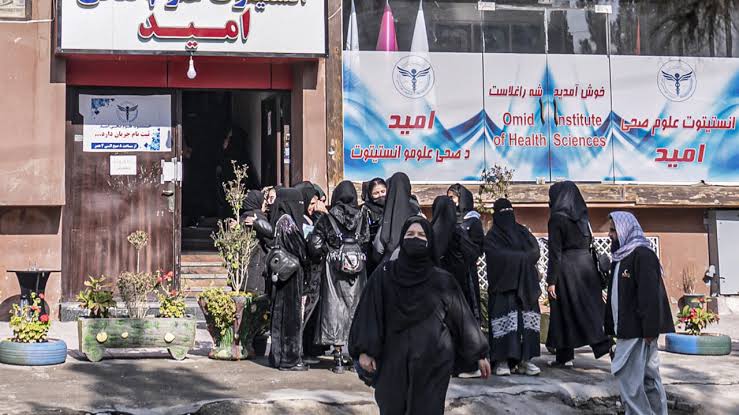The Taliban has issued a directive prohibiting women in Afghanistan from studying nursing and midwifery, dealing another severe blow to women’s education and healthcare in the country.
Health officials communicated the edict during a meeting with directors of health institutes in Kabul on Monday, December 2, according to a public health ministry official who spoke anonymously.
“There is no official letter, but institute directors were told that women and girls can no longer study in these institutions. No details or justification were provided, and the order was attributed to the supreme leader,” the official stated.
The lack of formal documentation has left many institutions in limbo. While some are awaiting a written directive, others are continuing operations as usual.
The ban comes as a significant setback for Afghan women, who already face extensive educational restrictions under Taliban rule. Women now constitute the majority of students in Afghanistan’s health institutes, which collectively host approximately 35,000 female students in public and private facilities offering courses in midwifery, pharmacy, anaesthesia, and dentistry.
“This decision will devastate our operations. Most of our students are women—what are we supposed to do without them?” questioned a health institute manager.
Aysha, a 28-year-old midwifery teacher in Kabul, shared her distress after being told not to report to work. “This is a psychological blow. Health-related courses were the only educational opportunities left for many women banned from universities,” she said.
The United Kingdom’s charge d’affaires described the decision as “deeply concerning” and an affront to women’s right to education. Critics warn that the ban will exacerbate Afghanistan’s acute shortage of healthcare professionals, further limiting access to essential services for women and children.
The Taliban’s policy has drawn widespread condemnation, with the United Nations previously labeling the regime’s restrictions on women as “gender apartheid.” The move underscores the increasing marginalization of Afghan women and the deepening healthcare crisis in the country.


